Proper development of healthy eyes at a young age greatly impacts your child’s ability to grow and learn. You should know the signs that indicate that your child may need glasses, and if you suspect your child is having problems with their eyesight, it is imperative to book an eye exam for them immediately. If any problems with your child’s eyes go undiagnosed, it can greatly impact their ability to learn at school and will affect the quality of their eyesight later on in life.
1. Squinting Eyes and Tilting Head
If you find your child is often squinting or tilting their head when they are looking at things far away, it may be a sign that they have myopia (nearsightedness). If myopia is diagnosed early on in a child’s life, there are effective control measures that can be taken to lessen its effects. Some of the measures include atropine eye drops, and specialty myopia control glasses or contact lenses.
2. Excessive Tearing
Excessive tearing can be an indication that one or both of your child’s eyes are being overworked, or their eyes might have some infection or damage. This issue can also stem from blocked tear ducts; to properly diagnose what your child is experiencing, you will have to bring them in for an eye exam so an optometrist can make an accurate assessment of your child’s eyes and give a recommendation for what type of solution will be the most effective.
3. Using a Finger to Read
If your child is a bit older and is still using their finger to follow along while reading, it could be a sign that they have amblyopia (lazy eye). Ask your child to try reading without their finger, and if they continuously get lost in the text, then you should consider whether or not they need corrective eyeglasses.
4. Losing Their Place While Reading
Astigmatism and strabismus (crossed eyes) can be the root cause of your child losing their place while reading. If your child signifies to you that they cannot make sense of what is on a page, or they say that text gets distorted or blurry when reading, this can be an indication that they need glasses. Getting your child to read aloud to you can be a great way to build up their literacy skills, but also gives you a chance to monitor their eyesight and ability to read text.
5. Rubbing Eyes and Eye Fatigue
If your child is always rubbing their eyes or complaining about how their eyes hurt, it may be indicative of a need for glasses. This situation is often a product of refractive issues and may signify that your child has astigmatism, nearsightedness, or farsightedness. Your child’s eyes are working too hard to see in some specific setting, and it is important for them to get diagnosed during an eye exam to understand the exact condition they are facing.
6. Covering One Eye to See
This might indicate that your child sees better out of one eye compared to the other. Your child may have amblyopia or astigmatism in one eye. These conditions can range from severe to almost negligible, so it is a good idea to book an eye exam for your child to see if they need glasses as a correctional measure for their eyesight. An easy way to tell which eye your child is having trouble with is by covering each of their eyes one at a time then asking them what they can see and which eye sees more clearly.

7. Complaining About Blurry Vision at Certain Distances
This may be the most obvious sign that your child needs eyeglasses, as they are directly confirming that they are having some sort of issue with their eyesight. They may be nearsighted or farsighted if the distance they can see clearly is the common issue. If one or both eyes are blurry all the time, it may indicate that they have astigmatism or some sort of damage to their eyes has affected their ability to see.
8. Performance in School
Your child may be having difficulties in school due to not being able to clearly see the information on computers and whiteboards. Most often it is an issue dealing with nearsightedness, but other ailments such as color blindness may be the cause of their impaired vision. Ask your child if they think reading the information on a whiteboard is hard, and ask them where they sit relative to the board in their classroom. This will give you an indication of the eyesight issue that might be present.
9. Extreme Light Sensitivity and Headaches
This issue can arise due to your child being photophobic (sensitive to light). If your child is getting headaches when they are outside for some time, this can be a sign that they are photophobic. Special eyeglass lenses and sunglasses can be used to reduce the severity of your child’s sensitivity to light, and help them see more clearly in bright conditions.
10. Sitting Too Close to Screens
If your child needs to sit very close to screens to see them clearly or needs to get very close to text to read it, it can be another sign that they have myopia. Being too close to digital screens can have a detrimental effect on eyesight at an early age, and eyeglasses should be considered to alleviate the issues your child is having with myopia.
What Should You Do if You Think Your Child Needs Glasses?
If your child is exhibiting any of these 10 things, it is a good idea to book an appointment to see if they need corrective eyeglasses or contact lenses. We will be able to accurately diagnose your child and get them the most effective corrective eyewear to suit their needs.
Myopia Control
Many children can start developing myopia early on in their life, and it is one of the most common eye problems in the world. Myopia control for children is the process of getting the right diagnosis for your child’s eye problems, providing them a prescription for lenses, and continually working on correcting their vision as they grow up through a specialized program that suits their needs.


